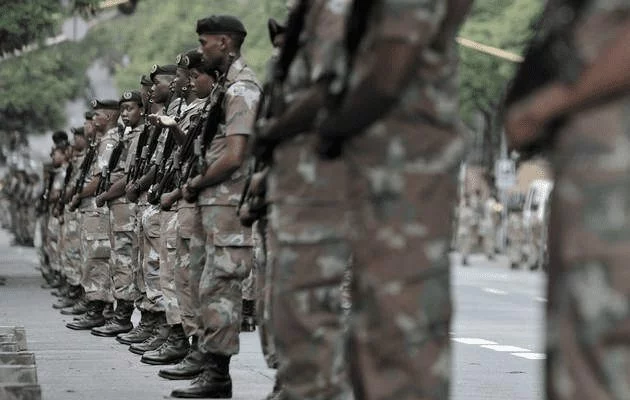Soldiers coming back in body bags intolerable
Back in the mid to late 1980s, the struggle against apartheid intensified on many fronts and it was becoming clearer with each passing day that the promised hour of liberation was nigh.
Chief among the catalysts was no doubt the wars the apartheid regime had entangled itself in on the continent in defence of the indefensible. A major front was the Angolan Civil War, where they overtly and clandestinely supported Dr Jonas Savimbi and his Unita militia, who were fighting the Soviet-backed MPLA government forces.
The MPLA was a friend of the liberation movement in South Africa, which naturally pitted them against the apartheid regime. Put in simple terms, it was a case of “my enemy’s friend is my enemy” that saw the apartheid army fighting in Angola, which was armed and aided by the Soviets and fought side by side with Cubans in a war that arguably led directly to the liberation of SA.
The battle of Cuito Cuanavale, fought between August 14, 1987, and March 23, 1988, is held up by history as the turning point in the final push for the liberation of Namibia, South Africa and the eventual permanent silencing of the Unita guns and the death of Savimbi years later.
Why this unsolicited history lesson? It is our view that when unpopular wars start to hit home in the manner the conflict in the eastern Democratic Republic of Congo did this past week, it is time to take stock and reflect.
When young men in their prime return home in body bags, sentiment starts to be swayed and recalcitrant rulers are forced to listen. The border war, as apartheid incursions and misadventures into the front-line states were euphemistically called, looked like fun and games until the bodies of young Boer seuns were brought home for the tannies to bury.
The Congo mess SA is entangled in now is not exactly on the same scale as Angolan war but bodies in body bags are once again being brought back home. News that 13 SANDF soldiers were killed by M23 militias has shaken the nation and reminded South Africans of a simi-lar disaster in the Central African Republic in 2013. What has become glaringly clear is that zero lessons were learnt from that debacle when, according to reports, 200 SA troops faced the wrath of 2 000 rebels. It seems similar mistakes are being committed in the DRC.
The public war of words between President Cyril Ramaphosa and his Rwandan counterpart Paul Kagame that followed the slaughter of our soldiers has done little to inspire confidence.
It only served to highlight the naivety of SA’s involvement in the Great Lakes region. Calls to radio talk shows by soldiers who had previously been deployed there suggested that the diplomatic inefficiency was matched by the unpreparedness of the boots on the ground, who it has since emerged were literally ill-equipped and lacked basics such as enough food.
Also, where was the commander in chief when the nation needed to hear from him in the face of such calamity? The president should have addressed us if only to assure the people that SA has a measure of control over the fate of the remainder of the troops in the DRC. Better still, withdraw our troops if you are not prepared to equip them adequately.



